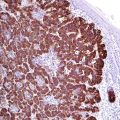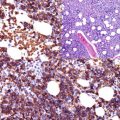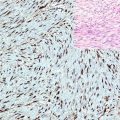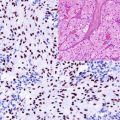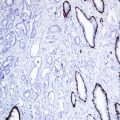, Hans Guski2 and Glen Kristiansen3
(1)
Carl-Thiem-Klinikum, Institut für Pathologie, Cottbus, Germany
(2)
Vivantes Klinikum Neukölln, Institut für Pathologie, Berlin, Germany
(3)
Universität Bonn, UKB, Institut für Pathologie, Bonn, Germany
Immunohistochemistry is a powerful and sensitive diagnostic tool for tumor diagnosis that requires high level of practical and theoretical knowledge. The precise tumor diagnosis begins with the adequate processing of tissue samples and includes the standardized stain technique, the optimal choice of diagnostic antibody panels, and ends with critical interpretation of stain results. In order to utilize all the benefits of immunohistochemistry and to minimize the possibilities of errors in tumor diagnosis, we recommend to consider the following points:
- 1.
Initially it is important to remember that the careful histopathologic examination and clinical correlation remain the cornerstone of morphologic diagnosis. The immunoprofiling is to support or rule out one or more of possible differential diagnoses.
- 2.
The laboratory of immunohistochemistry must be under the supervision of well-trained pathologist, highly skilled in methods and techniques of immunohistochemistry and has the necessary morphologic knowledge to do good and critical interpretation of immunohistochemical staining results.
Stay updated, free articles. Join our Telegram channel

Full access? Get Clinical Tree



